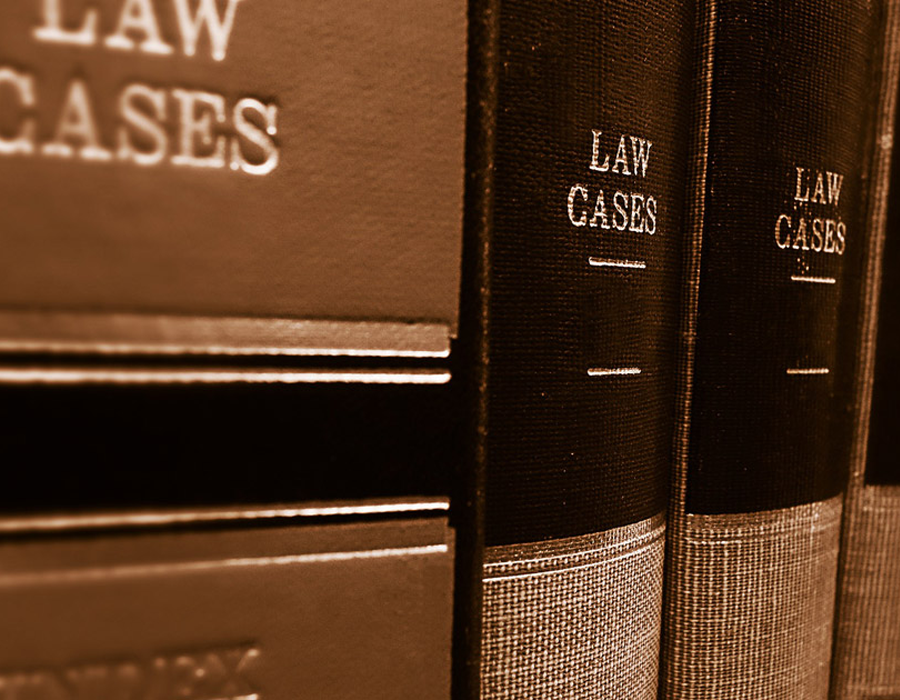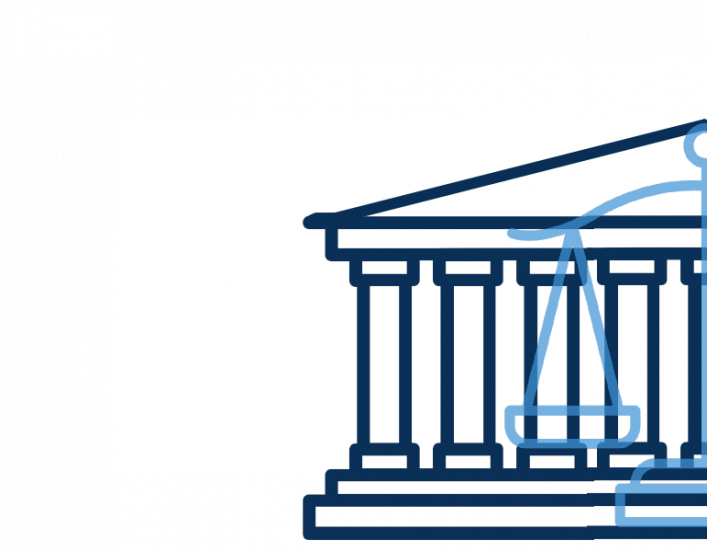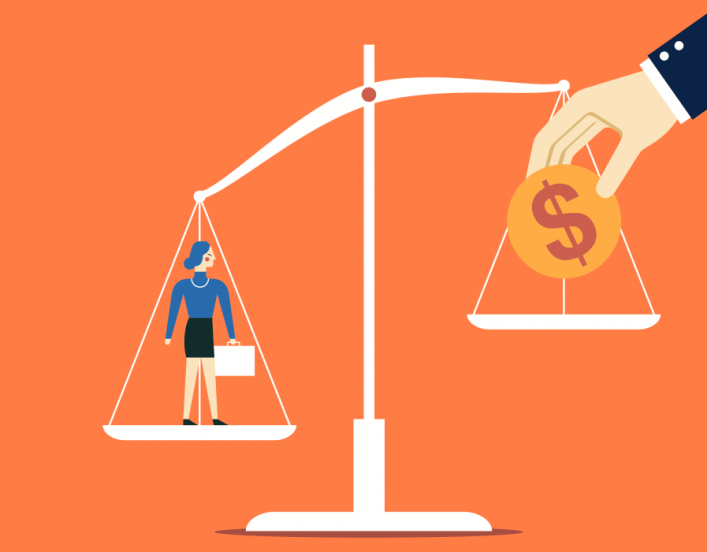Find Legal Help

When you’ve faced difficulty at work or at school, it’s hard to know what to do.
You may not be sure whether what happened violated your rights. Even if you feel strongly that someone has violated your rights, you may not know what steps to take.
Although AAUW cannot provide legal advice or referrals, this information can help you decide what to do next and where to find legal help.
Many state and federal laws require that you file a lawsuit or complaint within a short time after you experience unlawful treatment. For instance, under Title VII of the Civil Rights Act of 1964, you generally have 180 days from the discriminatory incident to file a lawsuit. A lawyer can tell you what time restraints apply in your case. If you think you might want to pursue a legal claim, it’s important to talk with an attorney promptly to preserve your legal options.
Your local bar association will often offer legal referrals or a local legal aid organization can help you find resources. Bar associations are professional associations for attorneys. If your city or county doesn’t have a bar association, try your state bar association. In some cases, legal aid organizations can provide legal advice or give you a referral. This interactive map also includes many useful resources ― civil legal aid organizations, public defender offices, and law firm offices with pro bono practices ― which are sortable by geographic location.
If you are looking for an attorney to assist you with an employment problem, you can also find a referral through national groups, like the National Employment Lawyers Association.
Our Know Your Rights page offer basic information about your rights under federal law. However, each state has its own laws that may provide additional or different protections. Many legal aid organizations and bar associations provide online guides to your rights under state law.
Finally, some nonprofit organizations, such as Equal Rights Advocates, maintain hot lines or online chat services you can use to speak with an attorney.
Pursuing a legal claim can be a long process. Even if you don’t file a lawsuit, challenging your employer or your school can be a draining experience, both financially and emotionally. It’s important to share your concerns and ask questions when you first meet with a lawyer. Here are some questions you may want to ask:
- What are my legal options? What should my next steps be?
- Does my case have merit? What are its strengths and weaknesses?
- What do you charge for legal representation?
- What are the risks involved in pursuing legal recourse?
- What kind of relief is likely in my case? Reinstatement? Promotion? Monetary settlement? Attorneys’ fees?
- Have you represented other people with cases similar to mine?
- If you are unable to take my case, can you refer me to someone else?
Make sure to ask about the costs of legal representation the first time you contact an attorney. There may be a cost for an initial meeting regardless of whether you decide to hire the attorney. Don’t worry about asking too many questions, and be sure to ask for clarification if you don’t understand. Your attorney’s job is to help you.
Unfortunately, the law doesn’t prohibit all unfair practices. Lawyers can’t always help, even if you’ve been treated unfairly. That’s why it’s important to ask your lawyer about your legal options, likelihood of success, and the cost of pursuing a claim.
In some cases, federal law requires you to file an official complaint with a government agency before you file a lawsuit. However, if possible, you should still contact a lawyer before filing a complaint.
For many federal employment discrimination laws, including Title VII of the Civil Rights Act of 1964, before filing a lawsuit you must file a complaint with the Equal Employment Opportunity Commission. To do that, contact your local EEOC office, which you can find online. After you have filed a complaint, the EEOC will notify your employer that you have filed a discrimination charge and begin an investigation into your complaint. Learn more about the EEOC process through our Know Your Rights resources.
If you think your school may have violated Title IX, the federal law that prohibits gender discrimination (including sexual harassment and sexual assault) in education, you have the option of filing a complaint with the Department of Education’s Office for Civil Rights. OCR investigates complaints and can hold schools accountable if OCR finds a violation of Title IX. However, you are not required to file a complaint with OCR before filing a private lawsuit under other discrimination laws.
Although AAUW doesn’t provide legal representation, our Legal Advocacy Fund offers case support funding for people challenging gender discrimination or harassment in the workplace or in education.
Yes. Many states have legal aid organizations that can help you pursue your legal rights at no or low cost. Not every legal aid organization is able to represent clients in all practice areas — for instance, many legal aid organizations focus on family law, housing law, or criminal law rather than on civil issues like employment discrimination. Additionally, most legal aid organizations only represent clients who fall within certain income restrictions. Even if a legal aid organization in your area can’t represent you, they may be able to offer specialized referrals or advise you where else to go for help.
Alabama
Arizona
California
- Central California Legal Services
- California Rural Legal Assistance
- La Raza Centro Legal
- Legal Aid Foundation of Los Angeles
- Legal Aid of Marin
- Legal Aid Society Employment Law Center
- Legal Aid Society of Orange County
Colorado
Connecticut
Delaware
Florida
- Jacksonville Area Legal Aid
- Lee County Legal Aid Society
- Legal Aid Service of Broward County
- Legal Aid Society of Palm Beach County
Georgia
Hawaii
Idaho
Illinois
- Chicago Legal Clinic
- Illinois Legal Aid Online
- Land of Lincoln Legal Assistance
- Legal Assistance Foundation of Chicago
Indiana
Iowa
Kansas
Kentucky
Louisiana
Maine
Maryland
Massachusetts
Michigan
Minnesota
Mississippi
Missouri
Montana
Nebraska
Nevada
New Hampshire
New Jersey
New Mexico
- New Mexico Legal Aid
- New Mexico Second Judicial District Court Pro Bono Legal Clinics
- Law Help New Mexico
- Law Access New Mexico
New York
North Carolina
Ohio
- Advocates for Basic Legal Equality; Legal Aid of Western Ohio
- Community Legal Aid
- Legal Aid Society of Cleveland
- Legal Aid Society of Columbus
Legal Aid Society of Greater Cincinnati - Legal Aid Society of Southwest Ohio
- Southeastern Ohio Legal Services
Oklahoma
Oregon
Pennsylvania
- Community Legal Services
- Legal Aid of Southeastern PA
- MidPenn Legal Services
- North Penn Legal Services
- Northwestern Legal Services
- Philadelphia Legal Assistance
Rhode Island
South Carolina
South Dakota
Tennessee
- Justice for Our Neighbors: Tennessee
- Legal Aid of East Tennessee
- Legal Aid Society of Middle Tennessee and the Cumberlands
- Southeast Tennessee Legal Service
- Tennessee Justice Center
- West Tennessee Legal Services
Texas
- Houston Volunteer Lawyers
- Jane’s Due Process for Pregnant Minors
- Texas RioGrande Legal Aid Inc.
- Texas Legal Services Center
- Volunteer Legal Services, Central Texas
Utah
Virginia
- Blue Ridge Legal Services
- Central Virginia Legal Aid Society
- Legal Aid Justice Center
- Legal Services of Northern Virginia
- Virginia Legal Aid Society
Washington
West Virginia
Wisconsin
- Community Justice Inc.
- Legal Action of Wisconsin
- Legal Aid Society of Milwaukee
- Wisconsin Judicare Incorporated
Wyoming
Related
Know Your Rights

7 Things to Know About Pregnancy Discrimination

What to Do If You Suspect Pay Discrimination

